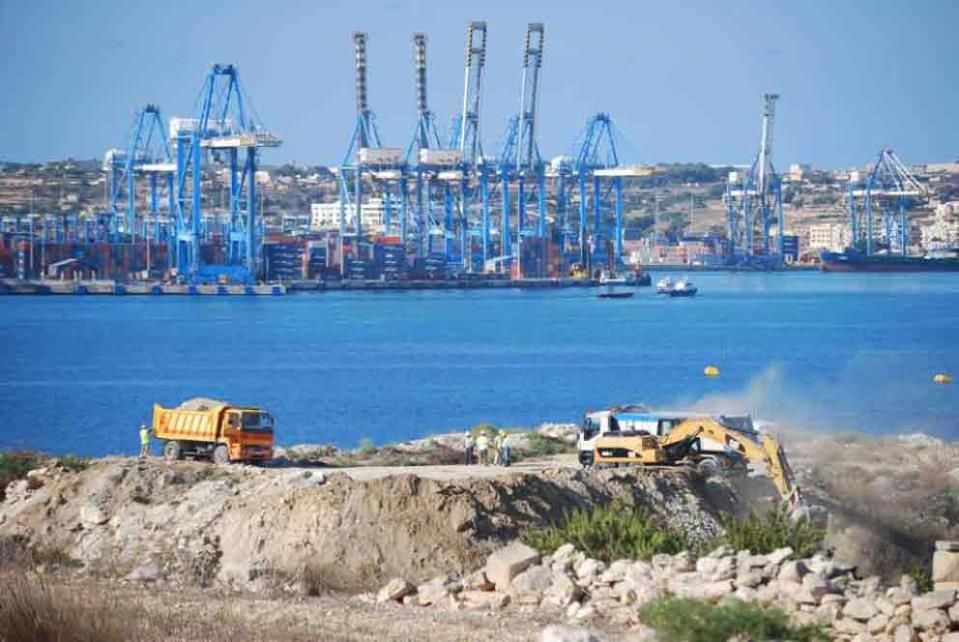With the European Commission aiming to press EU members states to harmonise their widely divergent tax rates on electricity as a step towards building a single energy market, questions are arising as to how Malta, which has one of the EU's lowest energy taxes - at just five per cent - could possibly cope with the extra burden without passing the ensuing tax increase on to consumers.
In his first interview since being appointed as the EU's energy commissioner, Miguel Arias Cañete told the Financial Times that evening out regulatory disparities across the 28-member bloc - as opposed to just laying billions of euros of pipes and pylons - was essential to make progress on a long-sought policy goal.
One of the biggest - and frequently overlooked - obstacles to sharing power across borders is the sharp disparity in prices, taxes and market rules across the EU.
In Denmark, a whopping 57 per cent of the final price of power is made up of taxes; in Germany, 49 per cent is based on levies. In Malta and the UK, the proportion is only five per cent. The discrepancies are similar in the gas market.
"Completing the internal energy market is not just a matter of building interconnections and infrastructure, it also needs new rules. When I say rules - very specifically - we are having problems with network tariffs," Mr Arias Cañete told the Financial Times (FT). "The composition of tariffs should be transparent and based on common rules. We have a very complex system of tariffs at the moment."
The construction of an 'energy union' is one of the EU's top priorities for the next five years. In theory, a common internal energy market would unite Europe's inefficient patchwork of competing national energy grids and make prices converge.
Asked by the FT why EU countries would agree to harmonise their energy tax regimes - something many may view as an encroachment on their sovereignty - Mr Arias Cañete cited the urgency to respond to Europe's flagging competitiveness.
"We have to make the economic case as we are fighting in a global market with more expensive energy prices than our competitors. We have gas prices for industry three or four times those of the United States; we have retail electricity prices double those of the United States," he said.

Government to buy energy from new power station at 'inflated tariff'
Meanwhile, it has emerged, as reported by this newspaper last week, that while the government has committed itself to buy electricity from the Electrogas consortium, it will be paying over double the price to buy energy on the European market using the Malta-Sicily interconnector.
As of last week, the price of electricity at peak rate on the European market stood at 4.3 cents per KW. The government has committed itself to buy electricity at 9.599 cents per KW for five years from the ElectroGas consortium, which will be operating the new gas-fired plant.
The base price on the European market is even lower at 3.643 cents per KW, as of Friday, on the European power exchange index.
"ElectroGas Malta Consortium submitted a Final Blended Price of €95.99 per MW which equates to 9.599 euro cents per KW. The Award price is in line with government targets and expectations and will enable the reduction in electricity tariffs," the government said last year when the power-purchase agreement was signed.
The price of electricity will be fixed for five years, a period which started when energy rates were reduced for households in March.
The Malta Independent on Sunday asked the Energy Ministry whether any re-negotiations are underway with the consortium over the tariff price.
"No negotiation have or will be carried out on the tender pricing," a Ministry spokesperson said.
Asked to confirm whether the tariffs as announced by the government still stand, the spokesperson said, "Energy tariffs for families were reduced in March and will be reduced for businesses in March 2015."
The government's contractual commitment to buy energy from ElectroGas at the 'inflated tariff' means Enemalta will be losing out when it comes to buying and selling.
The government has said it can sell the excess energy generated by the new gas-fired plant to the European market via the interconnector.
At the current spot prices, it is highly unlikely that the government will be able to find a buyer, as the energy generated by Electrogas costs more than double the European average.
his would either mean that the government would have to sell the excess energy generated at a loss, or not generate it in the first place.